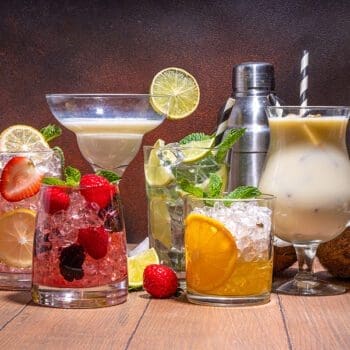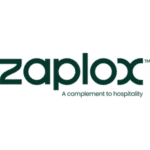
This is a companion piece to a recent op-ed on the growth low calorie and low carb wines, which are another growing trend for restaurants and hotel F&B. If you haven’t read it, go here.
All concerns about drinking and driving aside, the number of people abstaining from alcohol – either fully or curtailing their frequency per week – is growing. This is particularly noticeable in Gen Z, but other demographics can’t be excluded.
Whether for health reasons or otherwise, such patrons may look favorably upon anything beyond sodas or carbonated water – like mocktails or freshly squeezed juice concoctions – as to way to augment their meal experiences. With the growth of wellness, wellbeing and nutrition during the pandemic, this trend is bound to only increase even further.
Domestically, the alcoholic beverage market is approximately one quarter trillion dollars (2021 data). Growing quickly, the alcohol alternative beverage market, or imitation beverages like zero-alcohol wine, beer and spirits is estimated at $29 billion, or roughly one tenth the size. To put this in perspective, the alcoholic alternative market is equal to the sum of all ‘brown’ spirits – Bourbon, Irish Whisky, Scotch, Brandy/Cognac, Canadian and American Rye Whisky (data sources: Statistica and Distilled Spirits Council).
Importantly, for hotels, adding or deepening your non-alcohol drink menu is a great way to ensure the average cover at the onsite restaurant doesn’t suffer due to declining sales of alcoholic beverages. Over the longer term, getting your own data on the total sales of these alcohol alternatives will help to guide future brand updates – be it a new restaurant concept or pivoting to make the property more focused on wellness – by giving you good metrics on what’s actually appealing to your current guests.
For those familiar with the television series the Simpsons, the secret rooftop garden was accessible through the fake door on the Kwik-E-Mart’s non-alcoholic beer cooler because no one really drank those products, at least according to Homer Simpson. Oh, how times have changed since that episode (titled “Lisa the Vegetarian” for those with a Disney+ subscription) aired in late 1995.
Nowadays, spirit alternatives such as Seedlip, a gin equivalent with an expanding lineup of plant-based liquor substitutes, have made a tremendous impact in the marketplace. According to Seedlip’s website, their first product is based on the distilled non-alcoholic remedies from The Art of Distillation written in 1651 by John French. Having tested their Grove 42 (Seedlip sells three different varieties), we can tell you that it is very close to its alcoholic equivalent.
As another example, Jukes Cordialities produces several of what we may call wine equivalents. They happen to be organic apple cider vinegar-based drinks made through the maceration of vegetables, fruits, herbs, spices and flowers with no fermentation.
The opportunity for your mixologist is to develop non-alcoholic cocktails based on these and others, recognizing the potential for additional revenues per cover as well as satisfaction enhancement. Much like how the growth of veganism and vegetarian influence a group’s selection of restaurants, so too will the presence of alcohol alternatives for non-drinkers in a party. Moreover, by promoting these risk-free products within your cocktail list, your designated-driver customers will no longer be relegated to soft drinks.
These are all good reasons to investigate your options. And you can go one step further by making the project a teambuilding exercise by transforming it into a contest for your bar staff to determine the final selection of non-alcoholic drinks.
To close, think broadly about where the world is heading over the next decade. Alcohol consumption is declining and people of all ages are more conscious of their health. Many of these alcohol alternatives are not only flavorful but also have healing properties. Luckily, they can now be easily procured for a good price. It behooves your hotel to develop a strategy for this broad consumer transition.
And if you liked this short article, the two authors here are big proponents of setting a great hotel experience through having an interesting wine selection, as well as increasing per-guest spend in the process. If you liked what you read, check out our latest book on how to enhance your wine sales entitled, “In Vino Veritas: A Guide for Hoteliers and Restauranteurs to Sell More Wine”. Buy your copy today on Amazon, or for bulk orders contact us directly.
This article may not be reproduced without the expressed permission of the author.




























